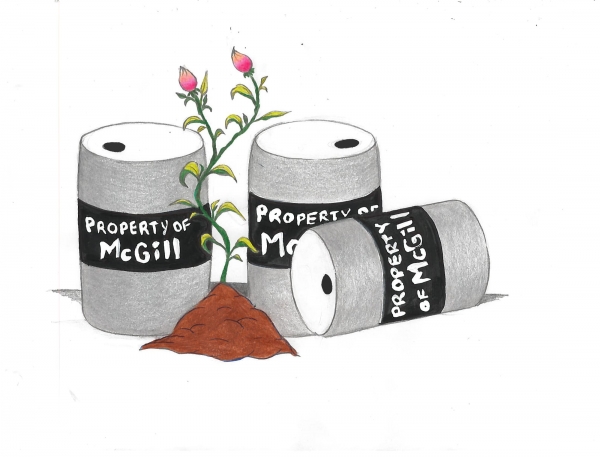The McGill University Senate—the governing body responsible for academic policy on campus—approved a motion endorsing divestment from fossil fuels on Sept. 12. Senators also delivered four annual progress reports relevant to academic matters, including an update on the Policy on Harassment, Sexual Harassment and Discrimination Prohibited by Law.
Determination of the Senate’s authority in an endorsement of divestment
Divestment refers to abstaining from investing in companies that profit from fossil fuels through extraction, distribution, and sale. Before voting on the motion, Principal Suzanne Fortier questioned whether it fell within the Senate’s sphere of influence. As the highest governing academic body, the Senate’s mandate lies in determining academic policy such as curricula development and the administration of student services like mental health. McGill Statute 6.3.8 does, however, allows the Senate to exceptionally step outside of its mandate.
“[The Senate can make] representations, through the Principal, to the Board of Governors as may from time to time become necessary or desirable, touching any claims and needs of the University or any part thereof,” Statute 6.3.8 reads.
Christopher Manfredi, provost and vice-principal (Academic), expressed reticence for the Board to pronounce themselves on divestment, perceiving it as a dangerous overreach on their part.
“I would submit that the purpose of Section 6.3.8 of the Statutes […] should be understood as filling gaps in the procedures, not as a means of circumventing [them],” Manfredi said. “Members of the community may be dissatisfied with the Board’s response to their representation, but this is not sufficient reason to deploy Section 6.3.8 [….] It would violate a fundamental aspect of the division of authority on which the bicameral nature of the university’s governance structure depends.”
Show of support for McGill’s divestment from fossil fuels
After lengthy debate, a large majority of senators voted to discuss the matter of divestment. Gregory Mikkelson, associate professor in the School of Environment, presented the motion and cited the University of Edinburgh and the Universities of California network as examples of academic institutions that have successfully divested. He also noted that many McGill networks had already expressed support for divestment, namely the Students’ Society of McGill University (SSMU), the Post-Graduate Students’ Society (PGSS), and the McGill Association of University Teachers (MAUT), as well as the Faculty of Arts, the Faculty of Law, and the School of Environment.
Yves Beauchamp, vice-principal (Administration and Finance), clarified the university’s investment strategy and warned that it might take some time for the impact of divestment to be visible.
“We have 45 managers at McGill to [whom] we are providing part of that 1.6 billion dollars [the size of McGill’s endowment as of Apr. 2017] and those managers are investing in different indexes,” Beauchamp said. “We don’t control the companies in which we invest and some of the investments we have to lock for five or 10 years. Even [if] we decide to divest tomorrow, we won’t see the impact [for a while].”
The motion carried, requiring that Fortier represent the Senate’s decision at the Board of Governors in the future.
Report on the harassment and discrimination
Associate Provost (Equity and Academic Policies) Angela Campbell presented the annual report on harassment and discrimination, which collects figures on complaints brought to the Senior Equity & Inclusion Advisor and their outcomes. The report notes a significant increase in the number of cases arising under the Policy during the 2017-18 academic year, 78 against an average of 33 per year over the course of the past five years.
“That’s a very large number,” Campbell said. “So, the question is of course why [….] My strong sense is that it is because of the enhanced awareness about these issues and greater propensity on the part of the individual to raise it to people in authority.”
The next Senate meeting will take place Oct. 24.
A previous version of this article stated that the vote to endorse divestment took place on Sept. 13. In fact, it took place on Sept. 12. The Tribune regrets this error.









